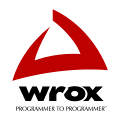New to Java? We'll help you get started with our revised beginner's tutorial, or our free online textbook.
|
|
 Get the latest Java books |
|
|
h t t p : / /w w w . j a v a c o f f e e b r e a k . c
o m /
|
||
|
Menu Articles Using Java Applets Looking for Java resources? Check out the Java Coffee Break directory! |
Java ProfilesIvor Horton
Q: What has been the biggest development within the Java Community in the last 12 months?A: It's hard to single out one development as being the biggest - there have been so many. For me I see the confirmation and reinforcement of Java as a major application development tool. This derives from several recent advances in Java technology:-
Q: What are the advantages working with Java, as opposed to working with other technologies?A: I would pick three major advantages that I believe Java offers over other programming technologies:-
Q: What is the fundamental difference between JDK 1.2 and JDK 1.3?A: While there is a whole range of incremental improvements to the capabilities that already exist in JDK 1.2, the Sound API is a major step change in functionality. You now have in JDK 1.3 a comprehensive facility for recording and replaying sounds in a wide variety of audio formats. It also provides you with extensive support for MIDI including a software synthesizer. Of course, the Sound API underpins the Java Media Framework, too. Q: Ivor Horton, thank you for your insight into changes to the Java platform. Ivor's latest book, "Beginning Java 2 - JDK 1.3 Version" is now available from retailers, and published by Wrox Press.Interview Copyright 2000 Wrox Press. Used with permission. |
||||
|
|||||


 Ivor Horton, author of the highly successful Beginning Java
series of books, and the upcoming Beginning Java 2 - JDK 1.3 Version,
talks to us about the Java language. He also discusses some of the most
significant changes he sees over the past twelve months, and what the
future holds in store for us all in the next version.
Ivor Horton, author of the highly successful Beginning Java
series of books, and the upcoming Beginning Java 2 - JDK 1.3 Version,
talks to us about the Java language. He also discusses some of the most
significant changes he sees over the past twelve months, and what the
future holds in store for us all in the next version.